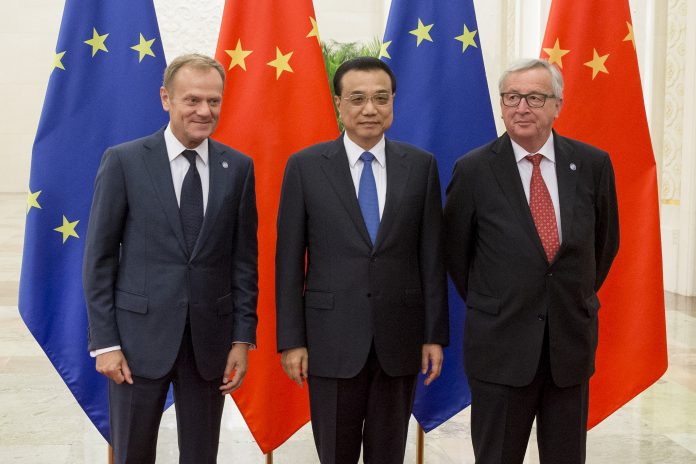This year’s EU-China summit, slated to be held in Beijing on July 16, will be more important than ever for global and bilateral trade and investment relations. Europe and China are discussing closer ties to counter-balance US President Donald Trump’s “America First” policies.
European Council President Donald Tusk and European Commission Chief Jean-Claude Juncker are representing the EU side. They will hold talks with senior Chinese officials, including President Xi Jinping and Premier Li Keqiang.
As reported by Deutsche Welle (DW), Germany’s international broadcaster, both sides are expected to express their support for a rules-based international trading system, governed under the auspices of the World Trade Organization (WTO).
Trump’s slapping of tariffs on steel and aluminium as well as threats of new duties on the automotive industry, have unnerved Washington’s trade partners throughout Europe, particularly Germany.
Likewise, China has been in the crosshairs of Trump’s tariff threats for months. The US administration recently imposed 25% tariffs on 818 Chinese goods, worth approximately €29.1bn, which came into force early this month. A second tranche of products is under review and could soon be added to the US measures.
The decisions prompted an immediate response from Beijing, with authorities there announcing they would hit back dollar for dollar.
However, observers say it’s unlikely that Brussels and Beijing will form an alliance against Washington. The summit this time is merely expected to produce a modest communiqué, affirming support for a multilateral trading system, but nothing more.
According to DW, this is because the EU and China have significant disagreements when it comes to issues like market access and intellectual property rights.
A recent survey conducted by the EU Chamber of Commerce in China concluded that China is “one of the most restrictive economies in the world”.
Another big issue dividing Europe and China is intellectual property. The Chinese government is accused of strong-arming foreign companies into sharing and disclosing their technologies by, for instance, entering into partnerships with local companies.
Also, Beijing’s “Made in China 2025” initiative, an ambitious plan to close the Asian giant’s technology gap with the West, is viewed as exploitative by many in the EU.
“Europeans have certain concerns when it comes to their economic ties with China. Beijing’s economic power and competition from China are growing. In this context, as populism in Europe rises, so do concerns about China,” Ding Chun, director of the Center for European Studies at Fudan University in Shanghai, told DW. “Europe and China are the world’s largest and third-largest economies. So dissatisfaction with and complaints about their policies and practices are completely normal.”

